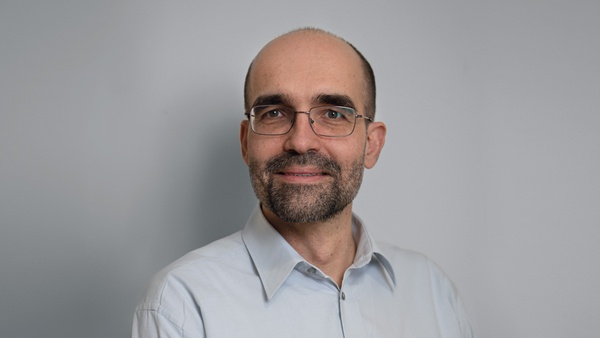Professor Thomas Pany is a founding member of the SPACE Research Center and holds the Chair of Satellite Navigation at the Institute of Aerospace Engineering and Space Research.
We have been working in the areas of global navigation satellite systems (GNSS), precise positioning, inertial and optical navigation since 1983. We conduct theoretical studies, develop prototypes of hardware and software and conduct application-oriented test campaigns. The range of navigation applications includes smartphones, autonomous driving and interplanetary flight, for example for asteroid mining. Our institute is also closely involved with the European navigation satellite system Galileo. An important part of the current Galileo signal structure was developed here at the Institute in cooperation with colleagues from other European institutions more than ten years ago and is received by more than a billion cellphone users today. On behalf of the German Federal Government, we participate in different working groups associated with Galileo at the European Commission in Brussels, at the GSA in Prague and at the ESA in Noordwijk.
A wide variety of measurement systems are available at the Institute and are used to check signals transmitted from satellites and to ensure compatibility with other radio services, for example. A UAVlite test system is being established at the Institute in order to help us gain a precise understanding of the effects of signals in real environments. GNSS satellites are emulated by multicopters and transmit new navigation signals using a payload that has been developed at the Institute. A network of ground stations on the premises of the university receives these signals and determines UAVlite positions and clock errors. The UAVlite system is completed by a fixed GNSS testbed (terrestrial transmitter+receiver). Other software developments at our institute include apps for the detection of wrong-way driving or for augmented reality as well as tools for the application of GNSS in civil aviation.
The Institute currently employs about 20 scientists in full-time positions, which are mostly third-party funded. Their specialties are geodesy, physics, electrical engineering, aeronautical engineering and computer science. In cooperation with the European Commission and the Bavarian Ministry of Economic Affairs, trends in satellite navigation and associated technical developments are discussed.

For detailed information, see the Satellite Navigation website >
Images: © Universität der Bundeswehr München; image: Siebold; image editing: Nietsch / © Just Imagine; images: Thomas Benz
